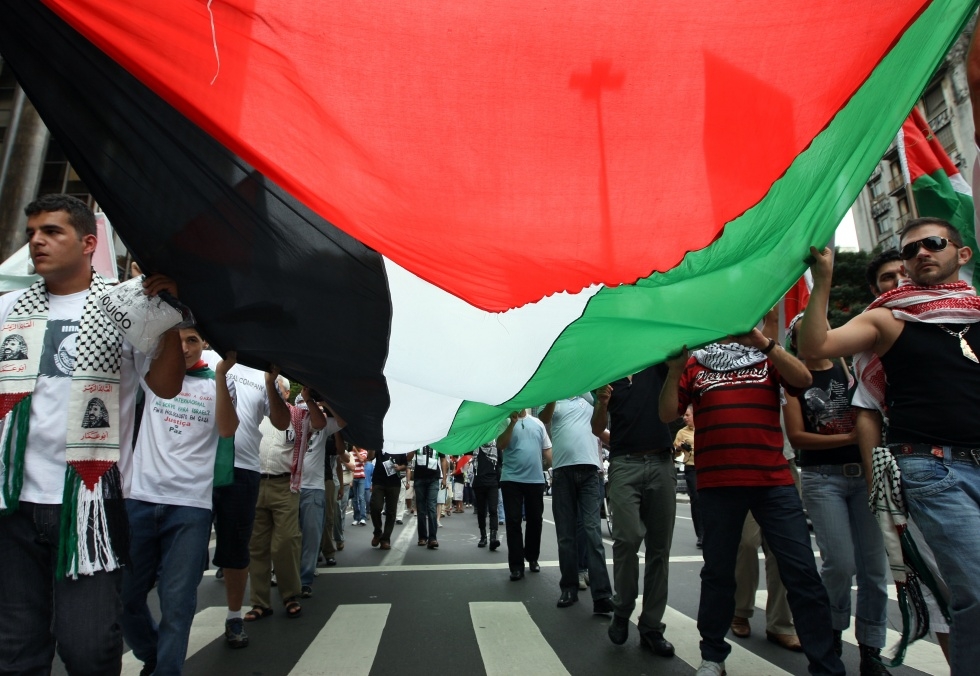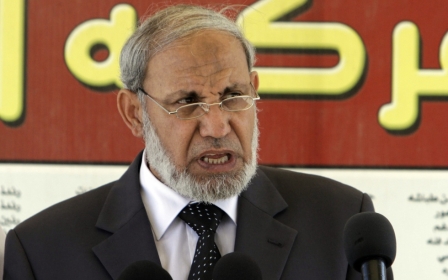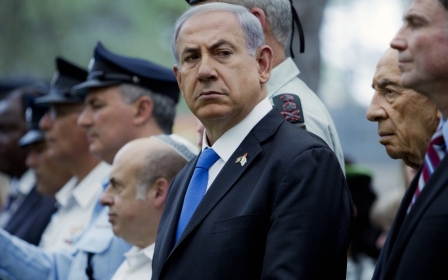Artists protest Israel-sponsored Brazil arts fair

Dozens of artists taking part in Sao Paulo's 31st Art Biennial have lodged a protest against the event after it received sponsorship from Israel.
The biennial, which started in 1951 and is the second oldest art biennial in the world after Venice, dating back to 1895, is scheduled to open its doors next Saturday.
But it will do so amid controversy after more than 50 artists urged organizers to return around $40,000 funding from Israel, whose consulate in the city is one of the sponsors of the event, in protest at the recent conflict in Gaza.
An artist from Ramallah, Ruanne Abou-Rahme, due to exhibit at the show with fellow Palestinian Basel Abbas, was among some 60 signatories to an open letter to organizers, prompting Globo daily Saturday to dub the event the "Biennial of conflict."
"At a time when the people in Gaza are returning to the rubble of their houses, destroyed by the Israeli army, we do not feel it is acceptable to receive Israeli cultural sponsoring," the letter, issued by participating Lebanese artist Tony Chakar, reads.
Three Palestinians and two Israelis are among the artists who signed the letter, which warns the São Paulo Bienal that it is in danger of "being used to legitimize aggressions and violations of both international law and human rights" and accuses Israel of wanting to "normalize itself through the context of a large international cultural event."
Three Israeli artists are set to feature with around 70 participants in total at this year's event. The exhibition's website shows the Israeli consulate, which could not be reached for comment Saturday, as a sponsor.
Globo, however, quoted, Consul-general Yoel Barnea as saying he was surprised at the row.
"We are democratic -- there are different points of view in our country," said Barnea, adding he did not want to see culture and politics mix. He insisted the sponsorship would not be withdrawn and that he planned to attend the show.
The group urged the organizers to reject the funding, reported to be in the region of $40,000 for the event, overall budget some $10.5 million.
The letter did not say if the artists would boycott the event if organizers failed to return the sponsorship to Israel.
Israel's campaign in Gaza saw Brazil recall its ambassador from Tel Aviv in July in protest at civilian casualties.
Israeli foreign ministry spokesman Yigal Palmor responded by dubbing Brazil a "diplomatic dwarf," forcing Israeli President Reuven Rivlin to apologize to Brazilian counterpart Dilma Rousseff earlier this month.
Aside from Israel, a number of other governments are supporting the Biennial, including Britain, France, Germany and Mexico.
Sensitive question
The São Paulo Bienal Foundation said it met with a representative of the letter's signatories, and that it would "take the issue to the Bienal Council" to discuss ways in which international funding would be handled for future events.
However, the Bienal's curators – two of whom, Galit Eilat and Oren Sagiv, are Israeli – went further, saying they "supported the artists and understood their position."
The curators said the fact that this year's Bienal repeatedly touches on themes of conflict versus justice in Brazil and throughout the world made the situation particularly difficult, and asked the Foundation to review its current rules for sponsorship and funding "making sure artists and curators agree on any support for their work that might have an impact on its content or the way it is received."
Brazilian artist Ana Lira, who is one of the signatories, told the Anadolu Agency (AA) that a number of factors – including the fact that Israel supplies arms to Brazil and helps train its police forces – meant that Israel's financial support for the event was "inconsistent" with what the Bienal stands for.
"It's a sensitive question, but the Bienal works with groups that support the poorest in society here in Brazil, who have been the subject of violence from Brazilian police officers, who have received training from Israeli specialists," Lira told the AA.
"I understand that the Bienal should be neutral in terms of politics, and I defend this, but accepting Israeli funding could have unforeseen consequences on the event's reputation and its work in the future. It must be completely transparent."
Israel's Haaretz newspaper said the São Paulo Bienal "appears to be the only large international exhibition in the coming year to which Israel artists were invited."
Middle East Eye propose une couverture et une analyse indépendantes et incomparables du Moyen-Orient, de l’Afrique du Nord et d’autres régions du monde. Pour en savoir plus sur la reprise de ce contenu et les frais qui s’appliquent, veuillez remplir ce formulaire [en anglais]. Pour en savoir plus sur MEE, cliquez ici [en anglais].



